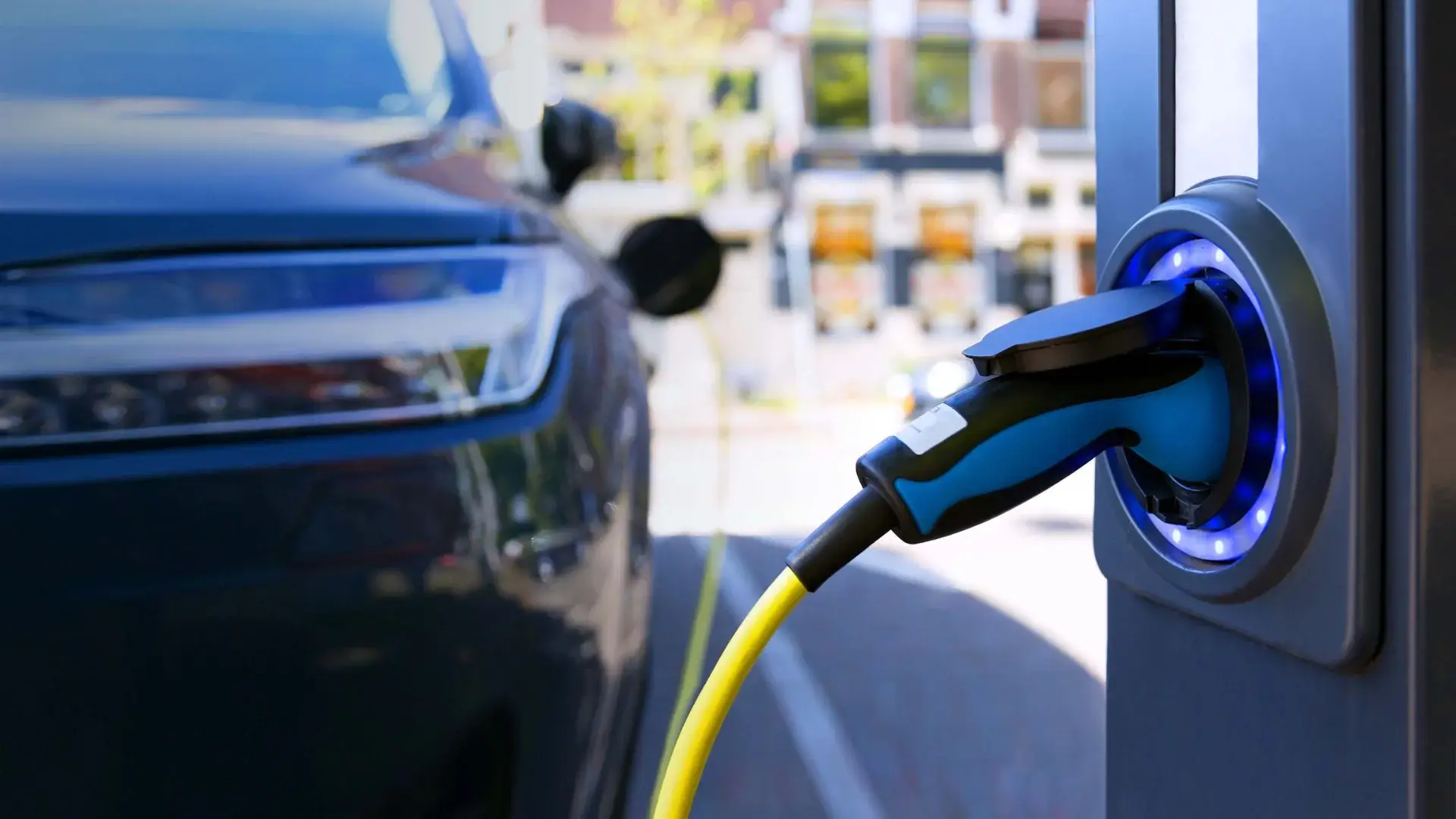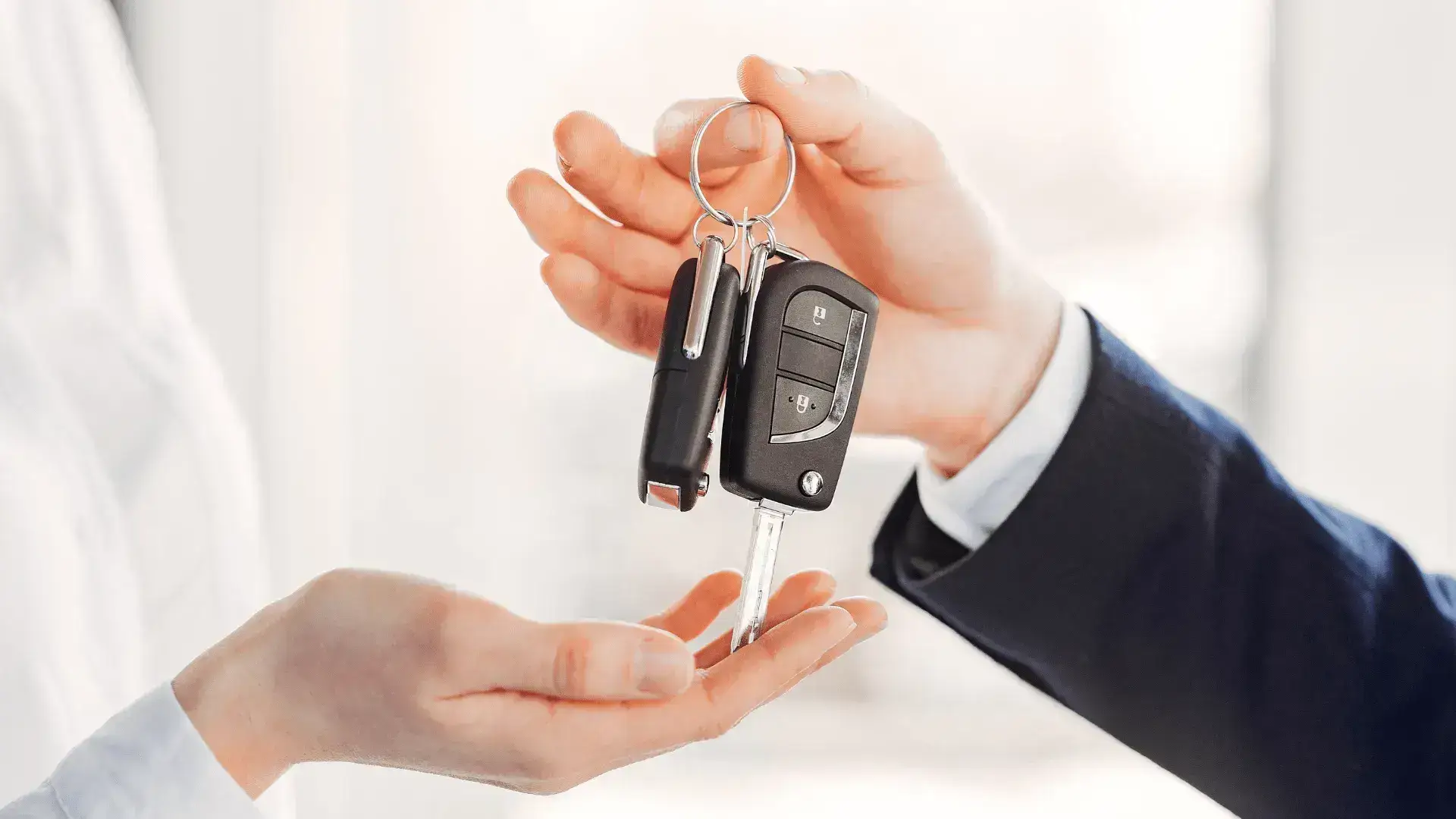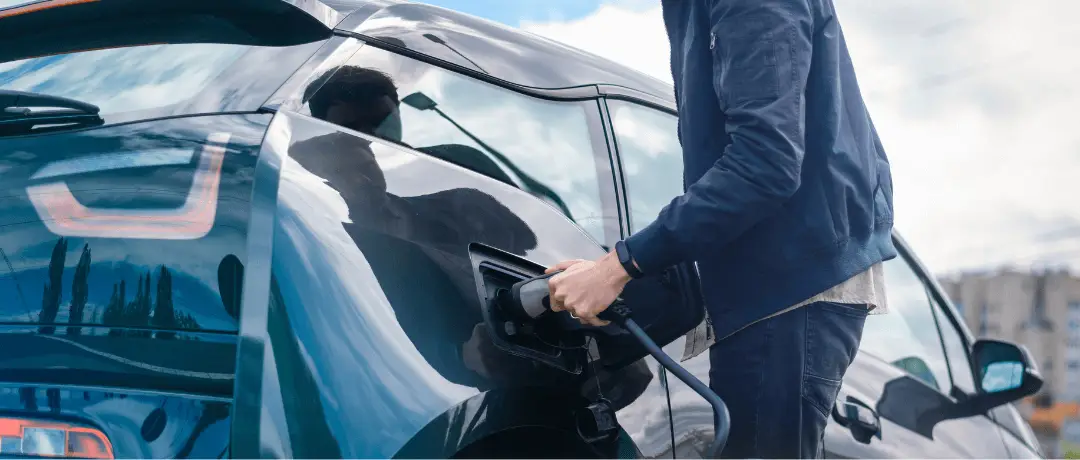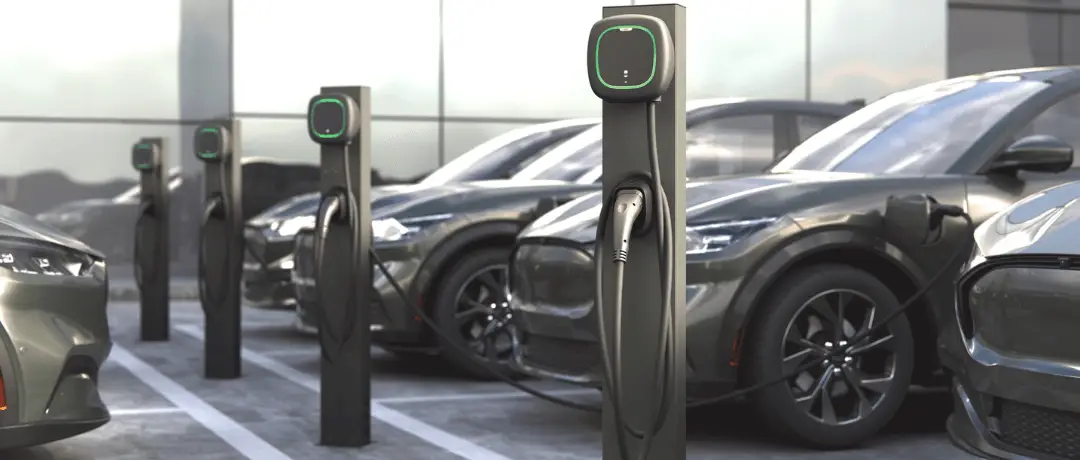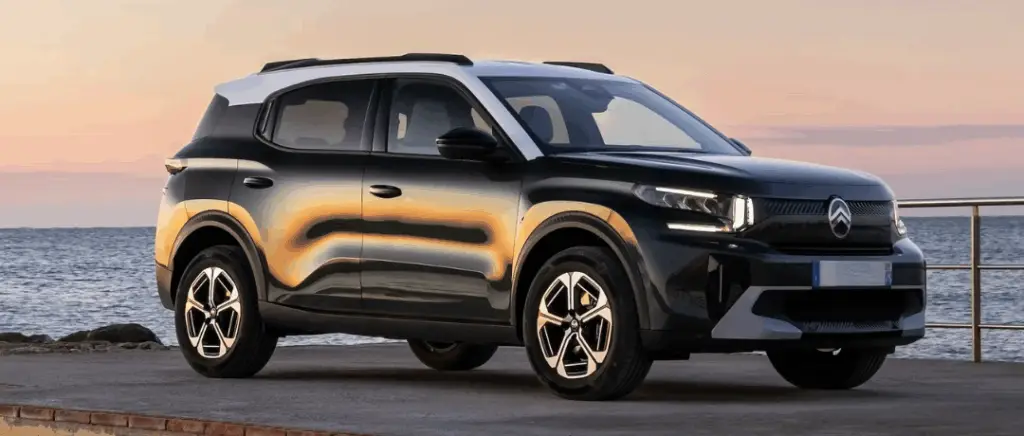You would like toto electric?
Beev offers multi-brand 100% electric vehicles at the best prices, as well as recharging solutions.
Long-term hire and leasing: what are they?
Long-term leasing
As stated in the preamble, long-term leasing (LTL) is enjoying a boom in popularity. significant growthThis is particularly true of electric vehicles, where it is attracting more and more private and business customers.
Long-term leasing is different because of the way it works: a 1 to 5 year leases with a fixed rent including services such as :
- l'maintenance,
- and theassistance.
At the end of the contract, the vehicle is returned to the lessorwith a possibility of purchase subject to conditions.
This type of financing offers advantages such as :
- budget control,
- the opportunity to change vehicles regularly,
- and the opportunity to test a model before buying it.
Naturally, the The cost of a full service lease depends on several factorsincluding :
- mileage,
- of the price of the vehicle,
- services included,
- and the duration of the contract.
For businesses and private individuals alike, long-term leasing is a flexible option that can be adapted to suit different needs, and it is also eligible for government grants, such as the environmental bonus and the conversion premiummaking the purchase of an electric vehicle even more accessible.
However, although it is possible to terminate a long-term leasing contract, doing so may entail costs. penaltiesbut alternatives such as lease transfer or the early return exist.
In short, long-term leasing is an advantageous financing solution for those wishing to access electric mobility while retaining a certain degree of security. flexibility.
Read our article about :
At the end of a leasing contract, the returning the vehicle is commonbut a LLD extension is possible for those who want to keep their vehicle for longer. This option differs from contract renewalwhich generally involves a new vehicle.
To extend a contract, certain conditions must be met, in particular:
- compliance with the set mileage,
- and a maximum term of 60 months.
If these conditions are met, the rental costs remain unchanged. It is advisable tostart the extension process 3 to 4 months before the end of the contract.
If an extension is not possible, there are 2 alternatives:
- return the vehicle,
- or opt for a Medium Term Lease (MTL).
Indeed, the LMD is a type of leasing that is more flexible over time and allows motorists to hire an electric vehicle quickly, while waiting for a new model to be delivered.
Read our article about :
For professionals, thedepreciation of an electric vehicle under a leasing contract is a essential accounting process for companies that capitalise these vehicles on their balance sheet.
La vehicle depreciationdue to their wear and tearThis allows you to deduct depreciation subject to ceilings based on CO2 emissions.
The vehicles exceeding 155 g/km of CO2 have a acquisition threshold limited to €9,900while those that are more environmentally friendly have higher ceilings, reaching 30,000 for vehicles emitting less than 20g/km.
To calculate non-deductible depreciation (AND), the difference between the financial value of the vehicle and the depreciation ceiling is divided by the depreciation period (generally 4 or 5 years) with a rate of 20 % or 25 % per year.
As a result companies recover VAT on rental payments for commercial vehicles at professional leasingbut not on passenger cars, except for fuel, where the recovery is partial.
Citroën ë-Berlingo Van 50 kWh

Purchase price 0 €
(list price excluding bonuses)
Leasing with no deposit for professionals from €599/month
- Autonomy ( WLTP): 275 km
- Acceleration (0 to 100 km/h): 9.7 sec
- Fast charge (from 20 to 80 %): 26 min
Fiat E-Ducato 47 kWh
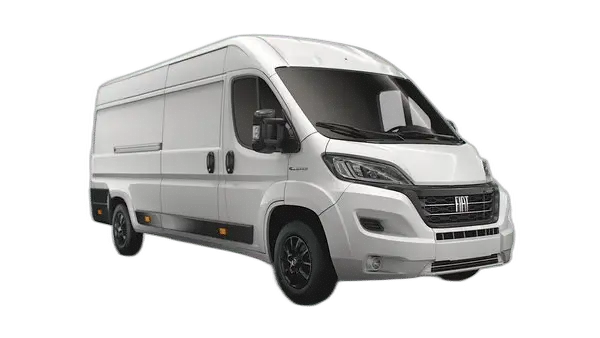
Purchase price 0 €
(list price excluding bonuses)
Leasing with no deposit for professionals from €699/month
- Range (WLTP): 170 km
- Acceleration (0 to 100 km/h): 10 sec
- Fast charge (from 20 to 80 %): 30 min
Mercedes EQV 300
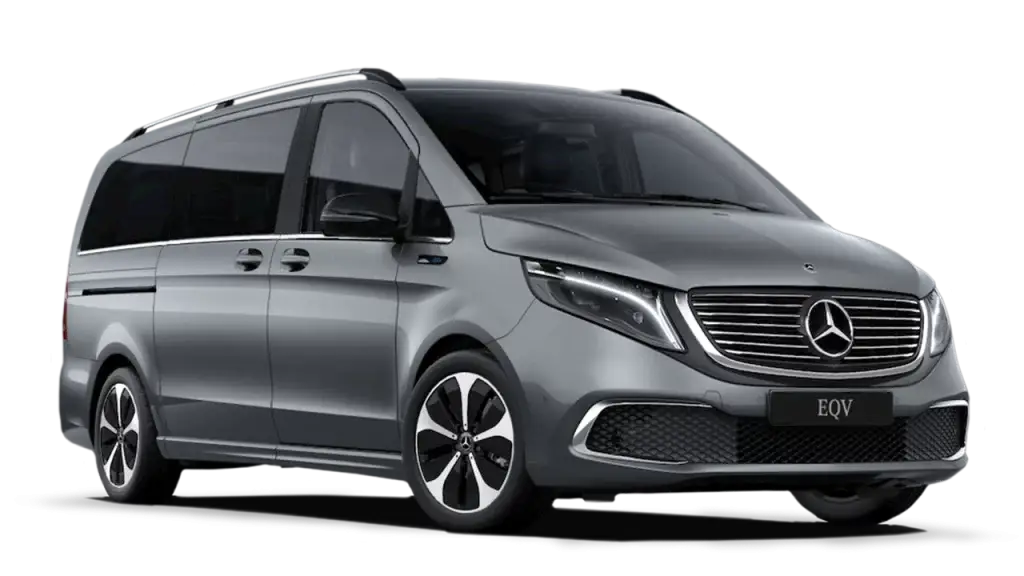
Purchase price 83 934 €
(list price excluding bonuses)
Leasing with no deposit for professionals from €858/month
- Range (WLTP): 353 km
- Acceleration (0 to 100 km/h): 12.1 sec
- Fast charge (from 20 to 80 %): 41 min
From a tax point of view, electric vehicles benefit from a number of advantages, including theexemption from tax on the use of passenger vehiclesthe conversion premium and others will be explained throughout this article.
Read our article about :
As mentioned above, leasing electric vehicles offers a number of advantages for companies, particularly in response to the LOM Act which encourages companies to renew their fleet with electric vehicles.
On this subject : Ecological transition: 60 % of the 3,447 French companies concerned do not comply with the LOM law
This transition, supported by tax benefits such as thebenefit in kindallows you to preserve cash flow while benefiting from modern vehicles adapted to the company's needs.
What's more, the LLD does not affect the company's balance sheetas rents are considered to be deductible expenses rather than investments. This allows us to keep our debt capacity intact for other projects.
To optimise their fleet management companies need to monitor their TCO (Total Cost of Ownership), including aspects such as :
- maintenance costs,
- choice of vehicles,
- and eco-driving training to reduce energy costs.
Companies can benefit from other forms of financial assistance for the purchase of electric vehicles, such as those described above, but also from interest-free loansmaking full service leasing even more attractive.
In addition to this, leasing your vehicle avoids additional expenses linked to :
- resale costs,
- vehicle depreciation,
- and company car tax.
Read our article about :
Make your energy transition now, with a range of new 100 % electric vehicles available for leasing from Beev!
Leasing with a purchase option
The LOA, on the other hand, allows you to lease an electric vehicle, with the possibility of buying it at the end of the contractwhich generally lasts from 2 to 5 years. This option is available to both private individuals and companies, but terms and conditions vary according to profile.
The cost of an LOA depends on a number of factors, including :
- the price of the vehicle,
- the rental period,
- and the planned mileage.
To take out an LOA, various documents are required depending on whether you are an individual or a company, guaranteeing your ability to meet monthly payments. The rental process begins with the choice of vehicle, followed by the submission of an online form. The experts at Beev can support you throughout this process.
The LOA offers a number of advantages, including :
- allows you to pay only for the use of the vehicle,
- the opportunity to change vehicles regularly,
- or to test an electric vehicle before buying it,
As with the other rental formulas, a number of financial aid such as the ecological bonus, the conversion premium and a zero-rate loan are also available to reduce leasing costs.
It is it is possible to terminate a LOA contract before its termbut this implies compensation. There are alternatives to avoid these costs, such asadvance purchase of the vehicle or the transfer of the contract to a third party.
Read our article about :
As you can see, the LOA is a financing method that allows you to smooth out the purchase cost over several years while having the the option of buying back the vehicle at the end of the contract or returning it.
The LOA offers a degree of flexibility, particularly for :
- the companies
- seeking to preserve their cash flow,
- or for individuals
- who want to drive a new car without getting into serious debt.
However, the residual value of the vehicle is a key element to consider. It determines the amount to be paid if you decide to buy back the car at the end of the contract. However, it is difficult to assess the value of electric vehicles because of their poor track record on the second-hand market, government subsidies on new vehicles, and the rapid evolution of their technology.
Whether it is preferable to buy back the vehicle at the end of the contract depends on a number of factors, including the following potential resale value compared with the purchase option. If the resale price is higherthe redemption can be advantageous. On the other hand, if the vehicle has travelled more kilometres than expected or is damaged, it could be preferable to buy it back to avoid penalties or restoration costs.
In other words, it is essential to fully understand the terms of the LOA contract, in particular :
- initial costs,
- mileage limits,
- and maintenance responsibilities.
A careful analysis of the offers, including a simulation of the total costs over the term of the contract, will help you avoid common pitfalls.
Read our article about :
The advantages of buying an electric car
The advantages of going electric via leasing include several forms of financial assistance to facilitate this ecological transition.
Firstly, we have the environmental bonusis a public incentive designed to encourage the purchase and use of vehicles with low CO2 emissions.
As a reminder, this measure is part of France's 2030 strategy, aims to promote a national electricity industryby supporting the production of 2 million vehicles in France by that date.
The amount of the bonus varies according to the type of vehicle and tax incomewith specific ceilings for individuals. However, this aid has not been available to professionals since February 2024.
Secondly, we have the conversion premiumIn addition to the ecological bonus, this scheme provides financial support for the purchase or leasing of ecological vehicles, whether new or used. This aid can amount to several thousand euros, depending on the type of vehicle and the profile of the buyer, whether private or professional.
Read our article about :
In addition, various regional aids in France are helping to reduce expenditure on eco-friendly cars.
Each region offers specific subsidies to encourage the adoption of less polluting vehicles.
Visit Île-de-Franceregional aid targets :
- the small businesses,
- the municipalities with fewer than 10,000 inhabitants,
- and individuals living in the inner suburbs.
The amount of assistance varies according to income, up to a maximum of 9,000 for the most modest. This aid can also be granted for retrofitting combustion vehicles to electric vehicles, with a subsidy of up to 3 000 €.
La Greater Paris also offers a "Métropole Roule Propre" scheme, up to €6,000for the purchase of an electric vehicle, which can be combined with the ecological bonus and the conversion premium.
Visit Occitania, l'eco-cheque mobility offer up to €2,000 for the purchase or lease of an electric vehicle, in addition to other subsidies such as the conversion premium. This aid is particularly advantageous for non-taxable households.
Other local initiatives exist, such as at Drancywhere residents can receive 1,500 for the purchase of an electric car. Finally, in Arve ValleySmall businesses can benefit from aid ranging from up to €5,000 for the purchase of clean vehicles.
Read our article about :
In addition to these financial incentives, leasing an electric car offers several advantages economic and tax benefitsmaking this option a an attractive choice for businesses and individuals.
Long-term savings come mainly from reduced energy costsElectricity is cheaper than fuel.
💡Did you know ? A study by UFC-Que Choisir in 2021 revealed that an electric car can save up to €1,750 over four years compared with a petrol model.
What's more, electric vehicles benefit from tax breaks, such as theexemption from company car tax (TVS), reducing the overall cost of leasing.
In terms of maintenance, electric cars, with their fewer moving parts compared with petrol vehicles, require fewer repairs, reducing maintenance costs. The majority of leasing contracts also include maintenance, guaranteeing peace of mind throughout the lease period.
What's more, the on-board diagnostic systems in electric vehicles help detect problems before they cause breakdowns, further minimising unforeseen costs.
Leasing also offers the flexibility of regularly changing vehicles at the end of each contract, a convenience that traditional purchase does not allow without the hassle of resale.
Discover our exclusive offers
Read our article about :
Electric cars are distinguished by :
- its dynamism,
- driving comfort,
- and reduced noise pollution.
In short, it makes her a the ideal choice for daily commutingparticularly in urban environments. As well as offering a pleasant driving experience, it allows you to reduce stress and the risk of accidentswhile reflecting a image as a responsible company that cares about the environment.
Finally, thethe range of electric vehicles has improved significantlyto meet the needs of business travellers. Recharging, once a hindrance, is now faster and more accessible thanks to cutting-edge technology, making it easier to use the car.using electric cars is becoming increasingly practical for professionals.
Read our article about :
As mentioned above, the electrification of the business car fleet is a topical issue, particularly where the fringe benefits related to electric vehicles.
This scheme allows companies to provide company cars that can be used for both business and personal purposes. But that's not all: electric vehicles benefit from a tax treatment to encourage companies to adopt greener solutions. For example electricity costs for recharging are not included in the calculation of the benefit in kindand a an allowance of 50 % is applied to expenditure on these vehiclesup to a maximum of €1,800 per year.
The Order of 26 December 2022 introduces an additional distinction concerning charging points installed at or away from the workplace, modifying the methods for calculating the benefit in kind.
In addition, the benefit in kind for company electric vehicles is calculated differently depending on whether the company has purchased or leased the vehicle.
- For a vehicle purchased :
- The benefit corresponds to a percentage of the purchase cost.
- For a leased vehicle :
- The benefit corresponds to 30 % of the annual rental cost.
In both cases, theinsurance and maintenance are also taken into account.
In short, for employees, the purchase of a company electric vehicle entitles them to a deduction for recharging costs, reducing their tax rate.
For companies, offering a company electric vehicle not only makes it possible to reduce social security contributions by revising salaries taking into account the benefit in kind, as well as support their social responsibility policy and meet decarbonisation targets.
Read our article about :
End of your leasing contract: what you need to know
When returning an electric vehicle at the end of a leasing contract, it is important to know that the the car must be in a good state of repair and maintenance under penalty of financial penalties. And more, meet contract deadlines and plan the return are essential to avoid complications.
At the end of the contract, there are several options available to tenants: the buybackthe renewal or the returning the car. Naturally, the choice will depend on your financial situation and specific needs.
On the one hand, the buyback can be advantageous if the vehicle is in good condition and the buy-back offer is competitive. On the other hand, selling the vehicle to a private individual is potentially more lucrative than returning it to the lessoralthough this option carries risks.
Read our article about :
La returning the vehicle at the end of the leaseWhether it's a leased or leasing contract, requires special attention.
A thorough inventory is carried out, including inspection of the bodywork, mileage and maintenance documents. Any abnormal deterioration or excess mileage may result in penalties. additional costs.
To prepare for the presentation, we recommend :
- from respect mileage limits,
- from make sure the vehicle is in good condition,
- and provide all the necessary documents.
In the event of early restitution, it is possible to transfer the contract to another tenant in order to avoid penalties.
Read our article about :
It's also worth bearing in mind that it is possible to terminate a long-term hire contract.
If the tenant finds himself in a situation where he can no longer meet his monthly payments, such as a change in personal or professional circumstances, the Lease transfer minimises financial losses. Failure to do so may result in substantial penalties if the vehicle is returned early.
For a LOA contract, the situation is more complex and costly. Although this type of contract offers the possibility of buying the vehicle at the end of the lease, the options for early termination are limited and often disadvantageouss. Early return of the vehicle, early purchase or resale after exercising the purchase option are possible, but generally involve high costs.
However, a leasing transfer can be an alternative solution to this problem. In fact, it allows you to terminate a vehicle leasing contract early by transferring the contract to a new buyerwhich includes the same financial conditions.
This solution is often more advantageous and therefore more economical than other forms of early termination.
Read our article about :
Leasing contract: Beev advice
Choosing a leasing company for your electric car is a strategic decision that requires a number of criteria to be taken into account.
The first is the range of vehicles available: it's essential that the company offers the model that's right for you. Beev, for example, offers a wide choice to suit different needs.
Next, the the terms of the contract must be clear and transparentspecifying :
- duration,
- the authorised mileage,
- and the terms of termination.
What's more, the ease of cancellation is a fundamental aspect ofThis is particularly important in the event of a change in personal or professional circumstances.
La the company's reputation is also a determining factor. A reliable company is distinguished by the quality of its customer service, price transparency and positive customer reviews. Online reviews, for example, can help you assess this reliability.
In which case, the wrong choice of company can lead to :
- unforeseen costs,
- poor customer service,
- and mechanical problems.
To avoid these pitfalls, it is advisable to compare offers, read contracts carefully and find out about the experiences of other customers.
Read our article about :
Other advice we can give you: when taking out a leasing contract for a fleet of electric vehicles for business purposes, it's crucial to avoid certain common mistakes.
Firstly, it is It is essential to compare offers from different service providersThis is because prices, conditions and services vary considerably. Do not not take account of its real needs is another mistake to avoid. This includes an accurate assessment:
- services included,
- of the annual mileage required,
- and the duration of the contract, which must correspond to your specific needs.
Read the contract carefully is essential if you are to understand all the terms and conditions, particularly those relating to insurance and maintenance, because these elements cannot be changed once the contract has been signed.
If there are any doubts, we recommend that you consult a leasing professional.
The fact of underestimate annual mileage can lead to costly penaltiesbecause all overage will be billed. Finally, theregular vehicle maintenance is essential if you are to avoid repair costs at the end of the contract, as a poorly maintained vehicle can lead to unforeseen costs when it is returned.
Read our article about :
What's the best choice between long-term hire and leasing?
First and foremost, it should be noted that leasing costs are not limited solely to the monthly repayments, whether for hire purchase or leasing. In fact, a number of additional costs need to be anticipated, including :
- recharging costs,
- vehicle transfer costs,
- the cost of comprehensive insurance,
- as well as disposal costs at the end of the contract.
Although leasing offers a significant advantage to companies wishing to renew their fleet frequently with the latest electric models, certain constraints must be taken into account, such as :
- mileage limits,
- the obligation to take out expensive insurance,
- and the potential costs of restoring the vehicle when it is returned.
Read our article about :
In short, the choice between leasing and long-term hire depends on the user's profile. For those who drive a lot, the LLD is often more advantageous because maintenance is included.
On the other hand, for light road users, the LOA can be more profitableoffering the possibility of buy back a little-used vehicle at a good price.
Finally, it's important to note that leasing offers tax advantages and access to the environmental bonus, may limit access to certain regional grants, which are only available on cash purchases.
In other words, the choice between LOA and LLD depends on your needs in terms of mileage, financial flexibility and preference for vehicle ownership.
Read our article about :
Conclusion
In conclusion, choosing between long-term leasing (LLD) and leasing with an option to purchase (LOA) depends on your priorities and your situation.
For the professionalsThe long-term leasing market is a flexible option and often more advantageous for managing a fleet without the hassle of ownership.
As for individualsIf you're looking to buy a new car, the LOA can be an ideal solution for those who want to have access to a new vehicle while retaining the option of buying it in the future.
However, each option has its own advantages and constraints. It's important to assess your mobility needs, your financial capacity and your long-term plans before making any commitments.
To help you make the right choice, Beev has positioned itself as a trusted partner, offering personalised support and tailored solutions, whether you are an individual looking for the best deal or a company looking to optimise fleet management.































